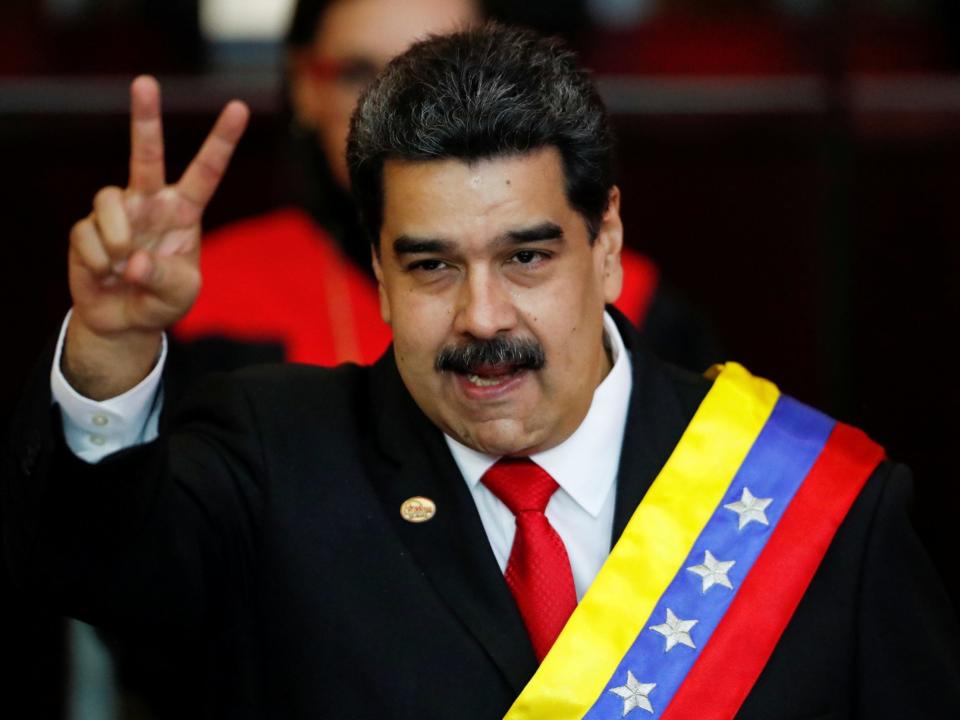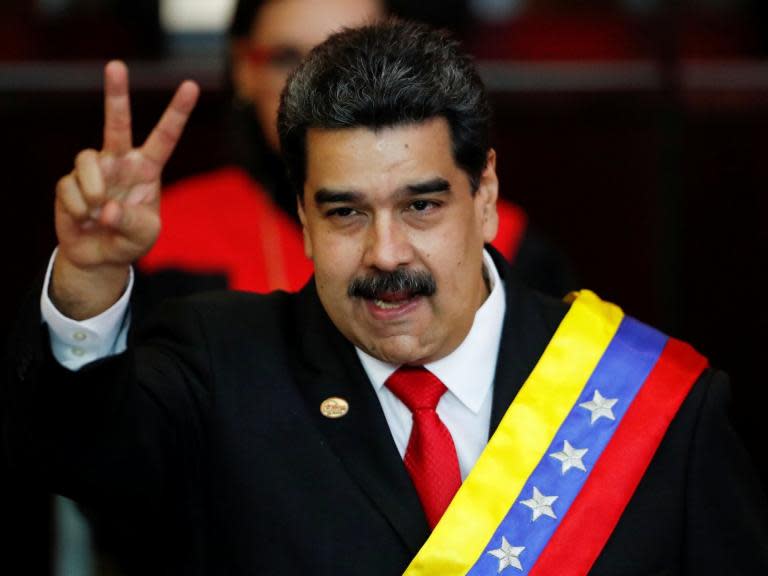Venezuela president Maduro increases minimum wage by 300 per cent as inflation approaches 2 million per cent
Venezuela‘s president has raised the country’s minimum wage by 300 per cent as part of routine wage increases as his government battles hyperinflation.
Nicolas Maduro increased the minimum wage to 18,000 bolivars, around £5.20, per month amid an economy suffering from annual inflation nearing two million per cent.
Mr Maduro announced his economic plans at the start of his second, disputed, term on Monday, as calls increased for him to surrender power.
He has faced growing international sanctions since he won re-election last May, in a vote widely considered fraudulent.
Venezuela has been cut off from foreign financing and left with few friends abroad.
Critics in the US and Latin America, as well as political opponents at home, have accused Mr Maduro of being a dictator whose failed state-led policies have caused Venezuela’s worst-ever economic crisis.
He has said he is a victim of a US-led “economic war” aimed at ousting him from power.
The size of the economy has halved during five years of recession, annual inflation is at nearly two million per cent, and widespread shortages of food and medicine have spurred three million Venezuelans to emigrate since 2015.
In August, Mr Maduro’s government introduced several economic measures to try to tackle the crisis, devaluing the bolivar currency and lifting the minimum wage and taxes. But economists say the measures were too limited to have a significant impact.
As Mr Maduro’s second term got underway, the leader of the country’s opposition-led Congress, Juan Guaido, said last week he was willing to replace the president with the support of the military.
Several government officials have said Mr Guaido should be arrested for treason and on Sunday he was briefly detained by intelligence agents.
Additional reporting by agencies


